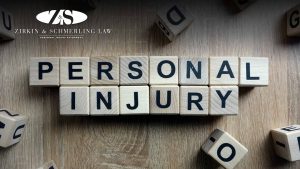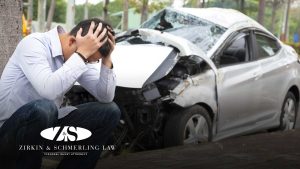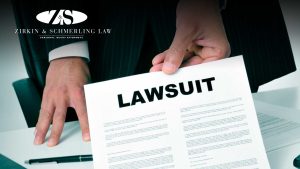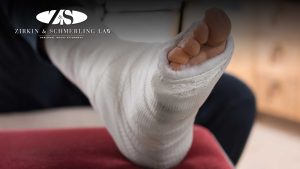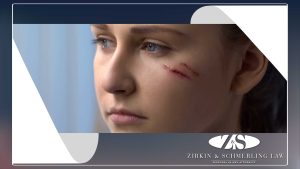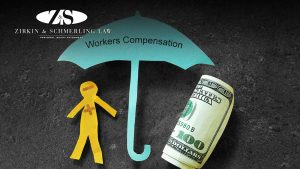Why You Need a Maryland Spinal Cord Injury Lawyer
The spine is the body’s central support structure that connects the various parts of your musculoskeletal system and is involved in nearly every movement you make.
A life-changing accident with a back injury and spinal cord injury occurs quickly in a traumatic vehicle accident, medical mistake, sports accident, or slip-and-fall accident.

Severe spinal cord injuries often result in extensive medical expenses, lost income, and debilitating pain and suffering that overwhelms a victim and their family.
If the spinal injuries resulted from someone else’s negligence, Maryland attorneys may be able to help you fight for compensation.
What Is a Spinal Cord Injury?
The spinal cord is a large column of vertebrae that runs from the base of the brain to the upper lumbar region. The bones create a long, narrow cavity filled with nerves.
Spinal cord injuries (SCI) often result in life-long suffering and disabilities.
Understanding spinal cord personal injury lawsuits allows you to seek compensation for the economic and non-economic damages caused by severe injury.
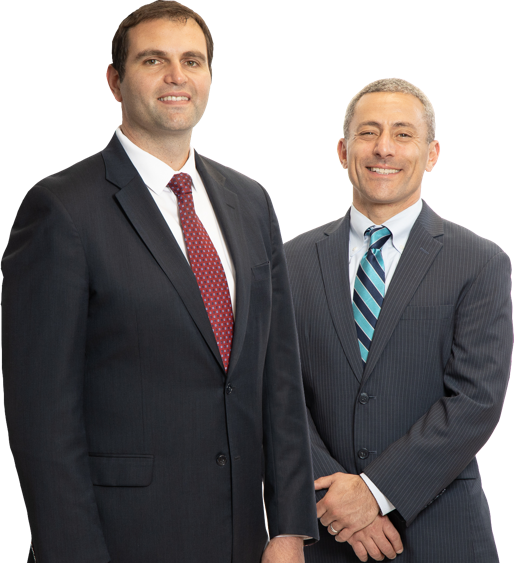
Types of Spinal Cord Injury
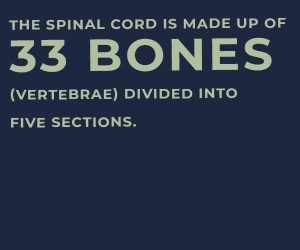
The spinal cord is made up of 33 bones (vertebrae) divided into five sections. The location of the spinal cord injury determines the symptoms and severity.
Cervical: These bones in the neck connect the skull to the spine and protect the spinal cord. An injury at the cervical level could result in quadriplegia, which is paralysis in both arms, legs, and the trunk.
Thoracic: Injuries to the spinal cord at the chest (or thoracic) level could result in paraplegia, or paralysis of the legs and lower back.
Lumbar injuries: The lower back area of the spine helps support the body. It is also the most common site of a herniated disc, and injuries here cause back pain and paralysis of the hips and legs.
Sacrum: The pelvis is connected to the sacrum, and injuries to the nerves can result in paralysis of the bowel, bladder, and sex organs.
Coccyx: This is the small triangular bone at the bottom of the spinal column, and physical pain or injury to it can be debilitating.
The Difference Between An Incomplete and Complete Spinal Injury

- Complete spinal cord injuries: All feeling and motor functions are lost below where the spinal cord is injured.
- Incomplete spinal cord injuries: There is partial feeling or motor function below the spinal cord injury.
Incomplete spinal cord injury cases may impact one side of the body more than others. For example, one arm may be paralyzed, and the other may have partial movement.
How to Determine Liability for a Spinal Cord Injury Claim
Spinal cord injury lawsuits allow victims to recover compensation for the damages caused by the spinal injury. The at-fault party must compensate victims for suffering due to their negligence.

If you have a spinal cord injury due to someone else’s negligence, call today to speak with one of our attorneys about your case. We pride ourselves on our compassionate approach, ensuring you feel supported throughout your legal journey.
Compensation You Can Recover from Spinal Cord Injuries
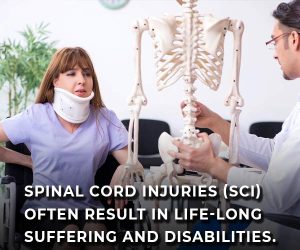
Spinal injuries permanently change a person’s life, affecting their ability to walk, move, and function. Many victims need constant assistance, cannot work, and struggle to find joy in life.
At Zirkin & Schmerling Law Firm, a Baltimore spine injury attorney will fight for your rights and seek the compensation you deserve, including:
- The expenses associated with medical treatments and medications
- The costs of physical rehabilitation and therapy
- The financial burden of acquiring in-home care equipment
- Compensation for lost wages and potential loss of future earnings
- Recognition of the impact on your quality of life and ability to enjoy it.
Maryland Statute of Limitations for Spinal Injuries
Time is important for all cases but especially for a spinal injury. Maryland Courts & Judicial Proceedings Code section 5-101 says that a civil lawsuit for a spinal injury “shall be filed within three years from the date it accrues.”
Common Causes of Spinal Cord Injuries
Motor vehicle accidents: Maryland car crashes, motorcycle accidents, and collisions involving other vehicles can cause serious injuries.
Falls: Slip-and-falls, especially from heights, are a common accident that causes spinal cord injuries, particularly in older adults.
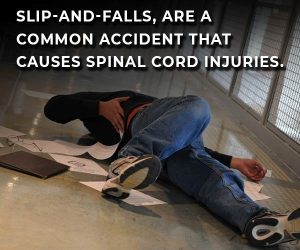
Sports injuries: High-impact sports like football, rugby, and diving, as well as activities like skiing and horseback riding, can result in life-altering spinal cord and neck injuries.
Workplace accidents and spinal injuries: Construction site accidents, falls from scaffolding, and other workplace incidents can cause spinal cord and spinal injuries that leave workers with lifelong pain.
Medical procedures and birth injuries: In rare cases, spinal cord injuries occur due to medical errors or complications during medical treatments or procedures. Attorneys can help you determine if these life-changing situations justify medical malpractice cases.
How Are Spinal Cord Injuries Diagnosed and Treated?
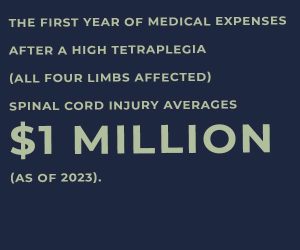
Any injury to the back and spine can be painful, debilitating, and expensive. For example, hospital stays are an average of 11 days. The first year of medical expenses after a high tetraplegia (all four limbs affected) spinal cord injury averages $1 million (as of 2023).
The costs of spinal cord and traumatic brain injury medical treatment and care expenses can be extensive and include costs for:
- Spinal surgery
- Trauma care (possibly including ventilators)
- Physical therapy
- Occupational therapy
- Speech therapy
- Mental health therapy
- Ongoing care–such as in-home aides
- Wheelchair, a wheelchair-adapted van, and costs of making your home wheelchair accessible
- Medications
If you were injured in an accident, you need an experienced Maryland car accident injury lawyer who can fight for full compensation.
Each Zirkin & Schmerling Maryland spinal cord injury lawyer has worked with clients dealing with all types of spine injuries. Call today for a free consultation.
How a Maryland Spinal Cord Injury Lawyer Can Help
These life-altering injuries create mobility challenges, cause financial strain, and change family dynamics. We understand that spinal cord injuries are painful, debilitating, limiting, and traumatic.
You need someone to establish negligence, prove the defendant’s failure to provide a fair settlement, and protect your legal rights.
Zirkin & Schmerling Law can help a victim pursue a high-value injury claim to recover damages, focus on health, and hold the negligent party accountable for their catastrophic injuries.

How Do You Select an Experienced Maryland Spinal Cord Lawyer?
You need a compassionate Maryland spinal cord lawyer who can handle the multiple legal issues that arise from severe spinal cord injury.
Consider these critical factors when choosing a Maryland spinal cord injury lawyer:
- Experience: Does the Maryland spinal cord injury lawyer have the credentials to represent you? Are they experienced with many types of personal injury cases in Maryland?
- Results: A trustworthy Baltimore spinal cord injury attorney will speak for you. Can your spinal cord injury lawyer get the best possible results for you while minimizing your effort?
- Reputation: Your Maryland spinal cord injury lawyer must have a golden reputation with the courts. Does your personal injury lawyer get positive results for clients?
If you have suffered a spinal cord injury in a car accident, slip-and-fall accident, work-related accident, or as a result of medical malpractice, call the Baltimore spinal cord injury lawyers to discuss your claim at (410) 753-4611.
Spinal Injury? Contact Zirkin & Schmerling Injury Lawyers Today

The last thing you need is the emotional distress of fighting for compensation or taking them to court for a personal injury claim on your own. That is why you should work with one of our experienced attorneys.
At Zirkin & Schmerling Law, your well-being is our top priority. We are here to provide comprehensive legal support to help you navigate through these challenging times.
Instead, contact the spinal cord injury lawyers at Zirkin & Schmerling Law. We will begin working on recovering compensation for negligence-related back injuries and spinal injuries you’ve suffered.
We serve Baltimore and surrounding areas (including Anne Arundel County).
Contact a spinal cord injury attorney at (410) 753-4611 to set up an appointment with an experienced Baltimore County Attorney today!

